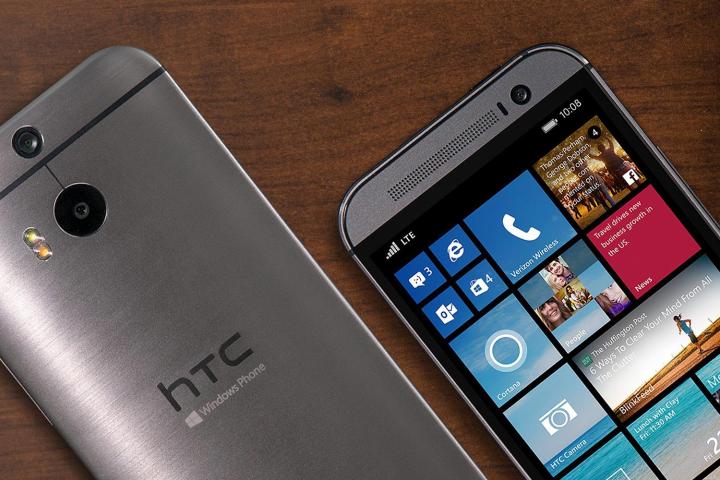
The launch of the HTC One M8 for Windows smartphone may not have been the biggest or flashiest event of the year, but don’t let this fool you into thinking it wasn’t important. This isn’t “just another new phone.” It’s a crucial release for both HTC and Microsoft, and its success or failure could shape the future of Windows Phone, and help determine HTC’s continued survival.
Microsoft needs some big guns, but it almost feels like it’s out of gas.
To improve this, Microsoft needs some big guns, but it almost feels like it’s out of gas. Samsung has stopped answering the phone, and Nokia has been the only major supporter of the platform for years. The whirlwind romance had resulted in a shotgun wedding too, and the Microsoft’s Nokia buyout hasn’t reinvigorated the platform yet either. In fact, it’s the opposite. Gone are the days of basketball-dunking executives, and cries of “AWESOME!” at press events, replaced with rumors of canceled projects and uninspired new releases. Microsoft hasn’t even decided whether Nokia phones should take its name or not.
Wheezy, jaded, and desperate
Clearly, something else had to be done. Microsoft needed to rustle up a properly exciting flagship smartphone the world would lust after. It needed to find a new friend, one which was also a little bit wheezy, slightly jaded, but still up for a challenge. A whiff of desperation wouldn’t go amiss either. On the prowl like an aging rock star, Microsoft found HTC in a bar, and as The Human League’s Don’t You Want Me played over the speakers, they found solace in each others arms.
HTC’s current situation isn’t all that different to Microsoft’s. It makes one of the very best Android smartphones available, and certainly the most attractive, but it doesn’t sell in the same numbers as devices from its competitors. It doesn’t crack IDC’s list of the world’s top five smartphone firms, putting its market share at less than 5 percent. Baffled, HTC has resorted to trying celebrity endorsements and weird advertising campaigns to pull in customers, but with limited success.

It knows there’s nothing wrong with the hardware, so what about swapping the software out for something else? It’s no coincidence HTC was in that bar, waiting for Microsoft to flash some cash. Transplanting Android for Windows Phone isn’t brave, or a last ditch attempt to win hearts, but a solid, calculated action that could be exactly what’s needed to revitalize sales. There are parallels with Nokia’s dilemma right before it adopted Windows Phone, only HTC is smart enough that it has pledged to continue supporting Android, too.
We want the same thing
Both HTC and Microsoft are looking for the same thing: Recognition. It’s not about success directly, but more about walking, talking, and looking like a success, regardless of market statistics. Do this convincingly and you instantly become more attractive.
Don’t for one minute think that hearts aren’t pounding at the thought of what’s at stake here.
Outwardly, everyone’s brimming with confidence, but don’t for one minute think that hearts aren’t pounding at the thought of what’s at stake here. For Microsoft, it’s a test of whether the previous lack of cool, pulse-raising hardware was holding Windows Phone back, or if it’s that the software just isn’t desirable at all. For HTC, it’s a test of whether walking where others fear to tread can pay off, or if there’s a good reason why nobody is exploring Windows Phone at the moment.
Ultimately, it all comes down to you and me. If you’re teetering on the edge of the Windows Phone cliff, then does the presence of the OS on a phone that is identical to a modern, top-spec Android device push you to take the final step? The worried faces at Microsoft and HTC are both really hope you’ll bite.


